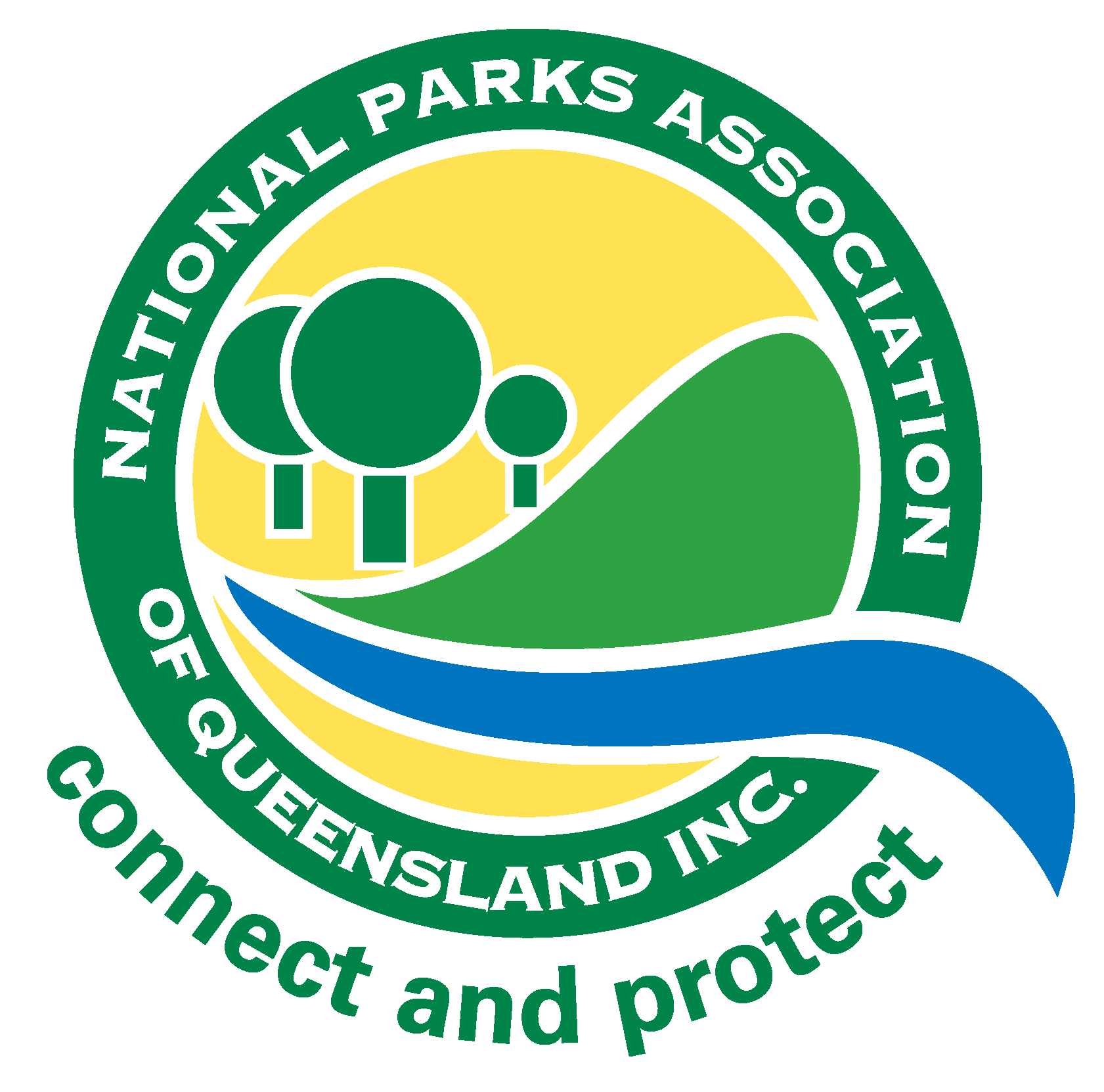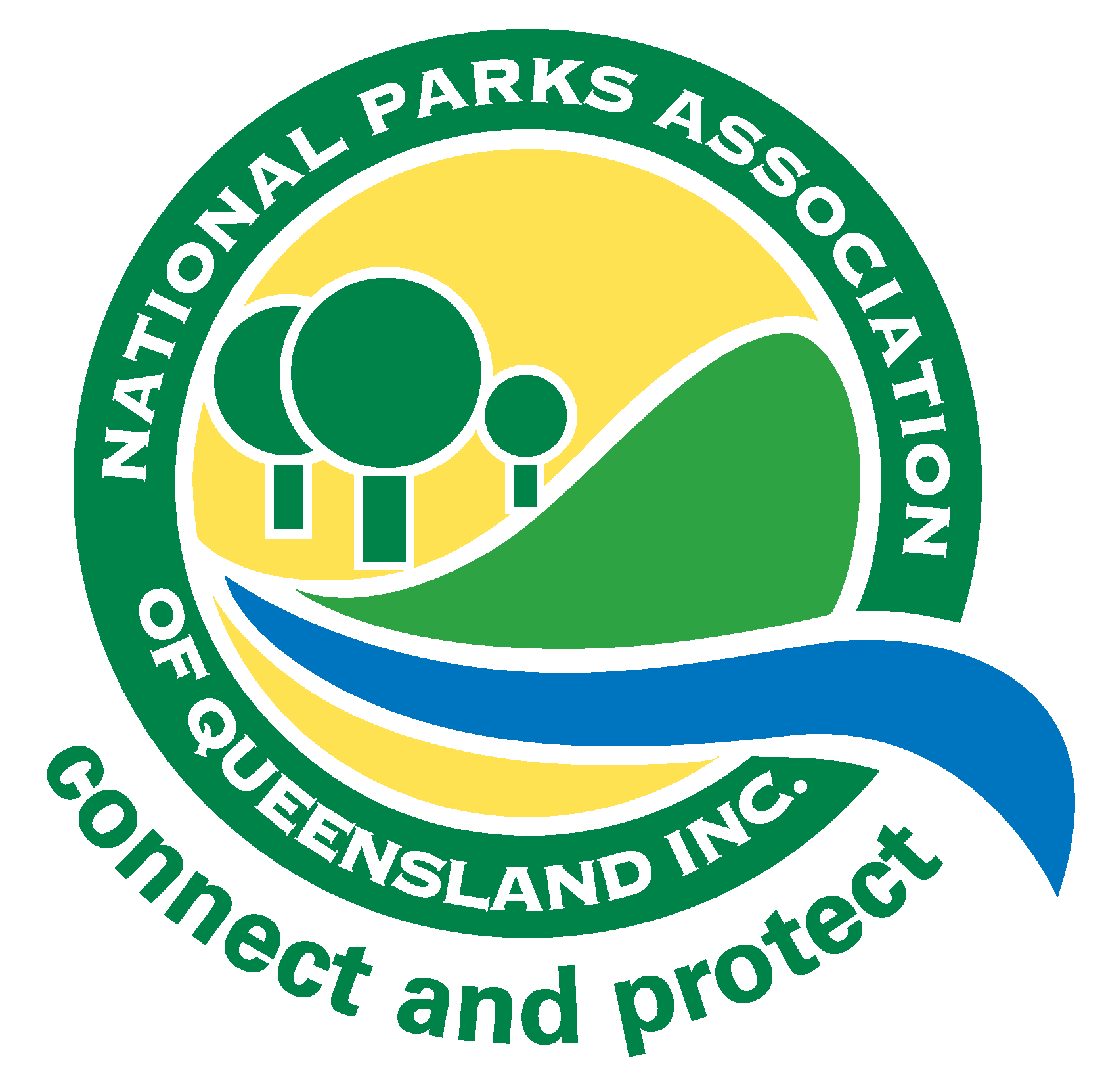The National Parks Association of Queensland (NPAQ) is supportive of genuine ecotourism activities that expand the range of people who connect with nature and become more appreciative of national park natural and cultural values. This leads to broader support for the crucial role protected areas play in protecting our biodiversity. It’s obvious that Queenslanders have reconnected to national parks following easing of recent travel restrictions. Visitor permits to national parks have increased fourfold from June 2020, as compared with the same period in 2019.
NPAQ Council and members have thought long and hard about the wide range of activities marketed as “ecotourism”. Activities such as guided walks, birdwatching, nature/cultural heritage interpretation, education and camping in designated areas are examples of genuine ecotourism and represent significant benefit to the park, regional economy and the tourism industry. Essentially, they promote a deeper, more appreciative connection with nature. Unfortunately, there is no shortage of greenwashed activities badged as “ecotourism” such as competitive events and thrill–seeking activities that seek a “natural backdrop” where the connection to nature may (or may not) be paid lip service. Such activities conflict with the purpose of national parks, the conservation of nature, and therefore will not be supported by NPAQ.
Ecotourism is often sold as a win-win for the environment and economy. However, without clear guidelines and limitations, ecotourism can raise issues around what is ecologically sustainable, acceptability of small sections of public national parks being effectively privatised (e.g. 60-year leases) and maintaining the integrity of the park experience for all visitors. NPAQ has been working with government and the tourism industry to achieve better outcomes for national parks and regional communities.
NPAQ ecotourism policy
Members have confirmed their support (about 85%) for NPAQ’s Ecotourism Policy including our 10 points describing leading practice for ecotourism in national park through a survey. Our policy includes additional criteria beyond the current government ecotourism framework.
Ecotourism trails program
NPAQ’s ecotourism policy is particularly relevant as the Queensland government pursues the Ecotourism trails program in several national parks:
- Wangetti Trail – walking and mountain biking trail through 3 national parks Macalister Range National Park, Kuranda National Park and Mowbray National Park
- Cooloola Great Walk in Great Sandy National Park
- Whitsunday Island Trail on Whitsunday Islands National Park.
- the Thorsborne Trail on Hinchinbrook National Park (on hold for now),
- Paluma to Wallaman Falls Trail – walking and mountain biking trail in the Paluma Range National Park and Wallaman Falls region
What about cycling and mountain biking?
NPAQ supports cycling in national parks on existing, designated roads to avoid impacts such as compaction of soil, exacerbation of erosion and adversely impacting on both species behaviour/reproduction and the experience of other users. Leisure cycling can be acceptable on formed trails depending on the situation. Overall, mountain biking is considered to be incompatible with the purpose of national park.
What about other states? Isn’t Tasmania a model for ecotourism?
Tasmania is typically held up as the model for ecotourism. Firstly, almost half of Tasmania is protected in national parks and other reserves whereas Queensland has only ~ 8% protected areas (only 5.2% of area is designated national parks). Tasmania’s biodiversity is more common than Queensland whereas Queensland has three biodiversity hotspots, five World Heritage areas and is home to 1,000 threatened species, up from 600 in 2007. Even in Tasmania, some trek companies and conservationists warn the rush for huts, lodges and helipads threatens to destroy the wilderness values on which the eco-tourism industry is based.
Also, a constrained plan, developed following extensive consultation, for sensitively placed commercial cabins in Flinders Chase National Park, South Australia, has been overridden under what appears to be a closed process following a change in government. The proponent, the Australian Walking Company, now plans to site the development on ecologically and aesthetically sensitive areas of the National Park despite protests. Having walked the track in 2017, Susanne Cooper, now NPAQ President, says the less sensitively located proposal would compromise the integrity of the “wilderness” of the Kangaroo Island Wilderness Track and the Flinders Chase National Park.
Supported Multi-day Walks in National Parks – Leading Practices from evidenced-based learnings:
- Accommodation is best located adjacent to or near national parks, rather than within. Supporting infrastructure within national parks is to be temporary in nature and suitable for easy removal.
- When needed to support genuine ecotourism activities, accommodation within national parks is to be low key, sensitively designed and in harmony with the surrounding landscape.
- Servicing of accommodation/facilities is to have minimal impact and be restricted to limited periods to minimise disturbance to wildlife and visitor experience. Mandatory orientation and authentic interpretation is to be provided and reinforced during visitor activities to achieve experiences based upon appreciation and respect of natural and cultural values. All messages and material are to be approved by QPWS.
- Infrastructure such as walking tracks and lookouts are to have minimal impact and are to be thoughtfully designed to reflect local conditions of slope, soil, vegetation and visibility.
- High impact and thrill-seeking activities are not supported or endorsed.
- Thorough, transparent and independent impact assessment is to be undertaken with enforceable conditions to ensure natural and cultural values are properly protected.
- An upfront bond is provided equal to the full cost of rectifying significant risks, including de-commissioning of infrastructure and rehabilitation.
- The activities/facilities environmental effects are monitored, assessed for risk, and reported on an annual basis, including any necessary remedial measures. To be publicly available upon request.
- Revenue generated for Government is directed to national parks management and publicly reported.
- A cap on visitor numbers is applied based upon ecological resilience and maintaining visitor experience.
Looking for more information? Here are a few key links including media.
- https://www.abc.net.au/news/2021-04-13/documents-reveal-rents-paid-on-wilderness-leases/100063744
- https://www.theguardian.com/environment/2021/apr/10/privatising-the-wilderness-the-tasmanian-project-that-could-become-a-national-park-test-case
- https://wild.com.au/conservation/luxury-lodges-means-wilderness-lost/
- https://theconversation.com/on-kangaroo-island-and-elsewhere-beware-the-lure-of-the-luxury-ecotourist-113044
- https://www.abc.net.au/news/2019-03-04/mr-godfreys-business-model-is-to-provide-luxury/10867106
- https://www.theislanderonline.com.au/story/5940397/australian-walking-company-sticks-with-flinders-chase-plan/
- https://www.abc.net.au/news/2019-12-15/private-development-in-national-parks-opposed/11800134
- https://tnpa.org.au/lake-malbena-development-proposal-background-summary/
- https://www.theguardian.com/environment/2018/dec/17/under-siege-our-commitment-to-australias-national-parks-is-waning
- https://www.theguardian.com/environment/2018/dec/19/turning-wilderness-into-theme-parks-the-great-national-parks-debate
- https://www.edenmagnet.com.au/story/6306444/parks-appeases-privatisation-concerns-but-light-to-light-accommodation-questions-remain/
- https://www.ditid.qld.gov.au/news-new/latest-news/articles/2020/september/new-tourism-projects-to-grow-industry-and-boost-jobs
- https://www.abc.net.au/news/2020-09-17/lake-malbena-eco-tourism-proposal-hits-setback/12673798


